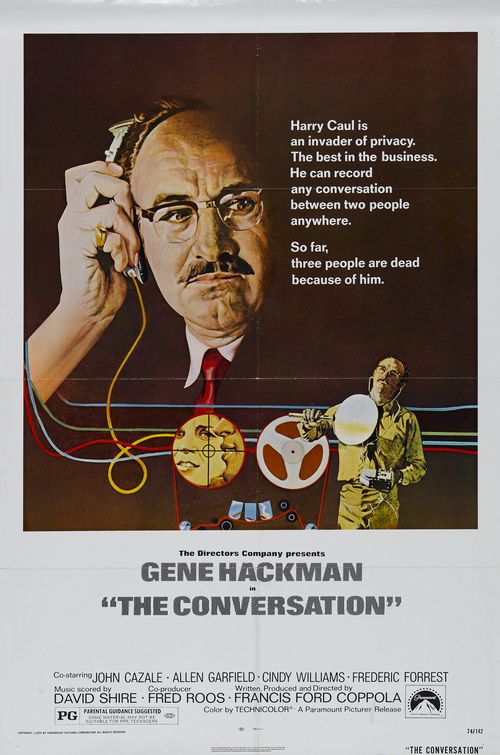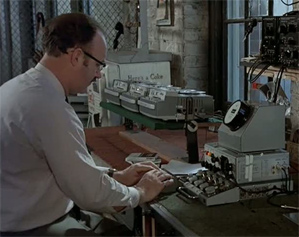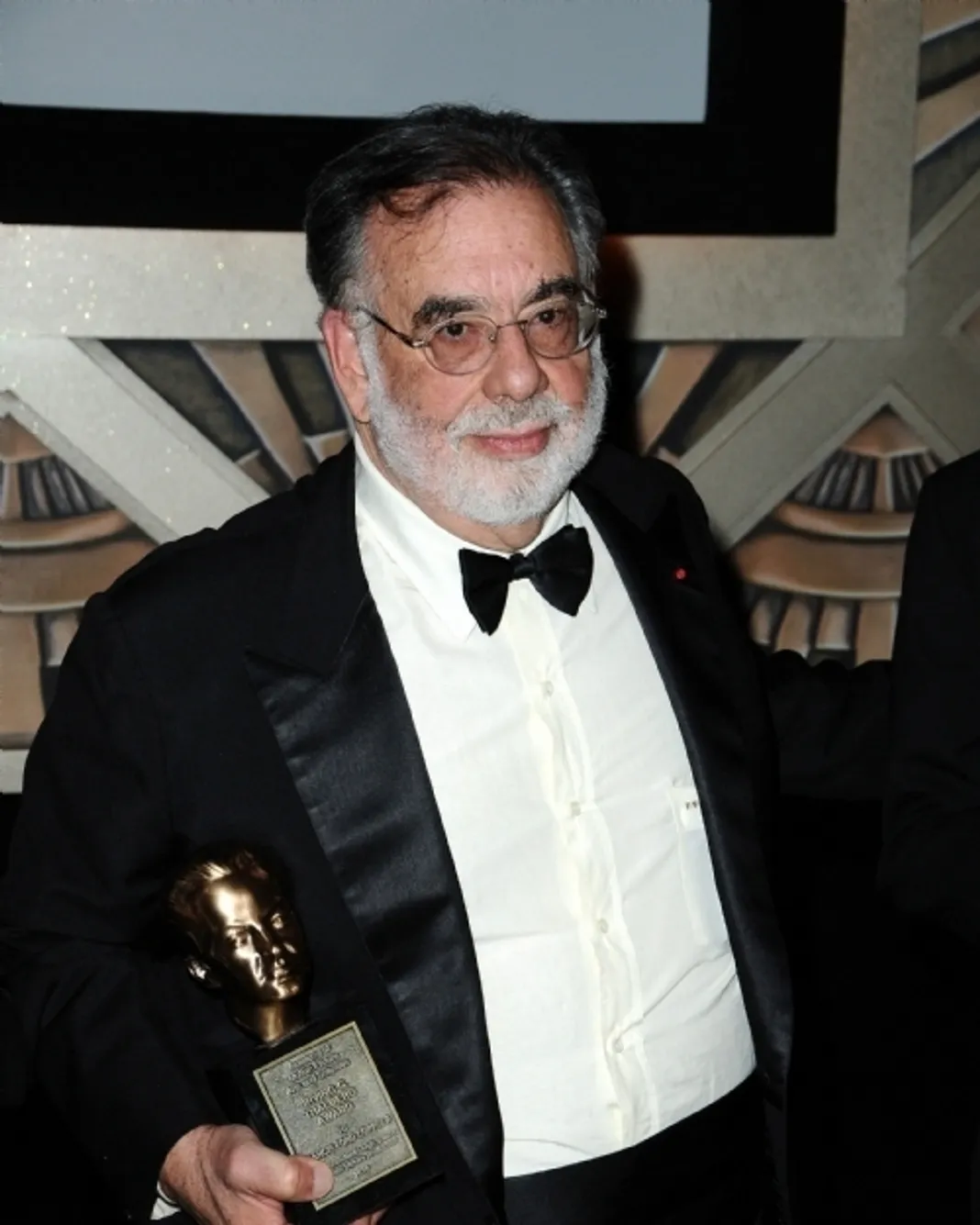 The word on the street is that Warner Brothers financed Inception because it was the only way they could get Christopher Nolan to do a third Batman movie. Is it true? There’s certainly precedent. Back in 1972, Paramount desperately wanted Francis Ford Coppola to direct The Godfather Part II. Coppola was a bit more ambivalent on the subject – and he had demands, a lot of demands. Among them, he wanted Paramount commit to finance this week’s classic Hollywood movie:
The word on the street is that Warner Brothers financed Inception because it was the only way they could get Christopher Nolan to do a third Batman movie. Is it true? There’s certainly precedent. Back in 1972, Paramount desperately wanted Francis Ford Coppola to direct The Godfather Part II. Coppola was a bit more ambivalent on the subject – and he had demands, a lot of demands. Among them, he wanted Paramount commit to finance this week’s classic Hollywood movie:
1974’s The Conversation.
At a screening of a rough cut, everyone in the room told Coppola the movie would do great in the box office except for The Exorcist director and legendary bad boy William Friedkin, who told Coppola he’d be lucky if the film made $500,000. Friedkin said the movie didn’t even have a story, that it was “just a bunch of shots.” The Conversation was, in fact, a box office failure – but critics loved it. The jury at Cannes awarded The Conversation, the Palm d’Or, largely because it was “bunch of shots.” Because more than anything else, The Conversation is about the art of film editing.
The Conversation tells the story of surveillance master Harry Caul as he assembles audio footage of one specific conversation for a sketchy client. After principal shooting was done, Coppola had to start on the Godfather Part II, leaving Walter Murch to deal with the editing and sound mix. This would be Walter Murch’s first job as a film editor, and it proved a formative experience for the man who would later win Oscar after Oscar for his work.
Murch describes editing a sequence where Harry’s splicing together different bits of the conversation, and he’s looking at his own editing equipment and then back at Harry’s editing equipment and Murch realizes that they’re going through the same process. For Murch, that was when the movie came together because he realized that The Conversation was a movie about editing. The experience of the movie becomes the experience of editing in the same way that 2001 did five years earlier for cinematography. In a way, Friedkin was right. The Conversation really is “just a bunch of shots.” They just happen to be beautiful shots spliced together in a way that is simultaneously analytic and revelatory.
In a way, The Conversation sits apart from the rest of Coppola’s body of work. Coppola’s films tend to be intimate and tender explorations of relationship and family: fathers and sons and husbands and wives and the ties that bind them together. The Conversation paints a deeply paranoid picture, using repetition, juxtaposition, and rhythm to depict Harry Caul’s descent into total isolation.
 Repetition is one of the keys. At one point during the conversation that’s been recorded Ann, played by Cindy Williams of Laverne and Shirley Fame, sees a homeless man. She says to the man next to her “I always think that he was once somebody’s baby boy…and he had a mother and a father who loved him. And now, there he is, half-dead on a park bench and where is his mother or his father or his uncles now?” That line gets repeated as Harry goes over the recordings over and over again, and each time her words take on deeper meaning. What starts out as a trite statement transforms into a description of Harry’s life. At one point Murch plays the line over Harry while he’s in bed with a woman, totally unable to connect with her, and for that moment the woman Harry’s been spying on seems to be the only one who understands hm.
Repetition is one of the keys. At one point during the conversation that’s been recorded Ann, played by Cindy Williams of Laverne and Shirley Fame, sees a homeless man. She says to the man next to her “I always think that he was once somebody’s baby boy…and he had a mother and a father who loved him. And now, there he is, half-dead on a park bench and where is his mother or his father or his uncles now?” That line gets repeated as Harry goes over the recordings over and over again, and each time her words take on deeper meaning. What starts out as a trite statement transforms into a description of Harry’s life. At one point Murch plays the line over Harry while he’s in bed with a woman, totally unable to connect with her, and for that moment the woman Harry’s been spying on seems to be the only one who understands hm.
The Conversation isn’t as epic as The Godfather movies or as intimate as The Rain People, but it is a great movie that beautifully unpacks just why editing and sound mixing sit at the heart of cinema. And if you’re Walter Murch fan, this is his first great tour de force.


